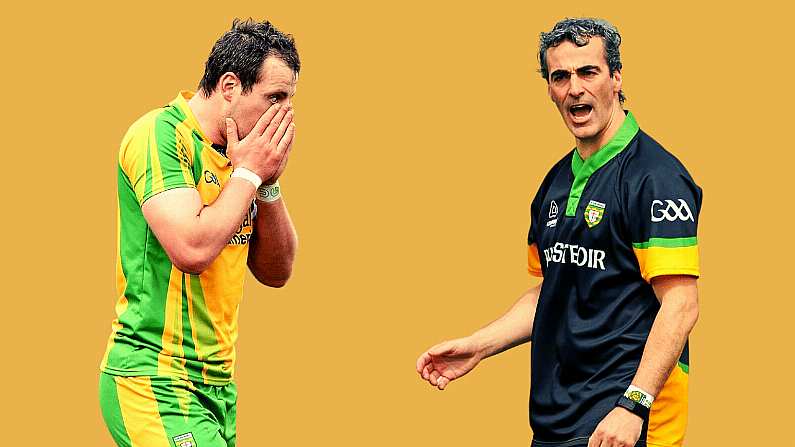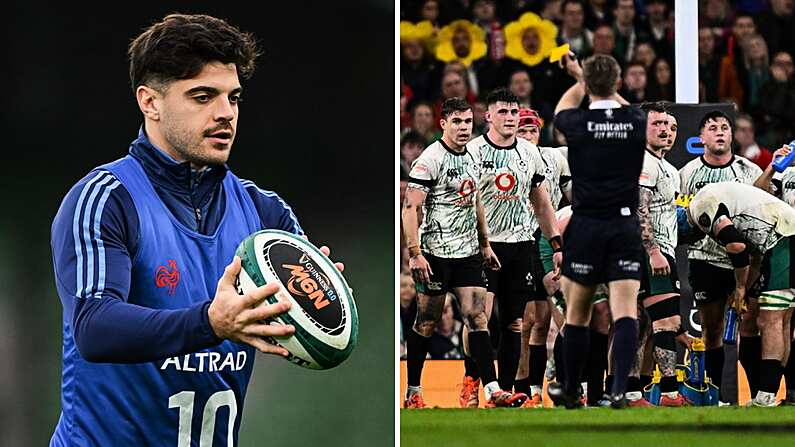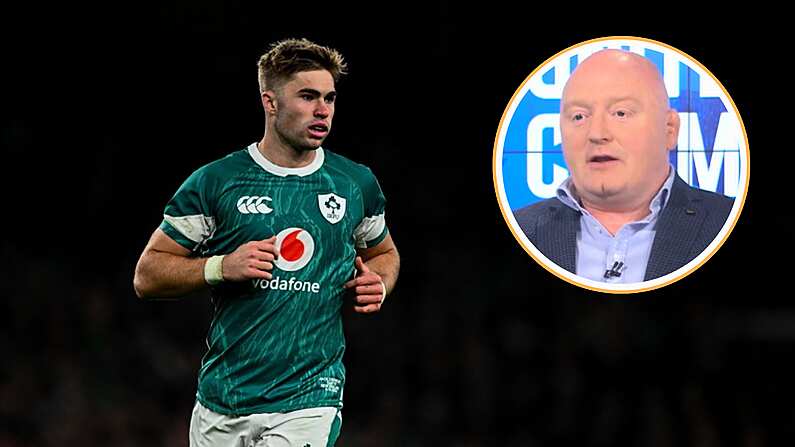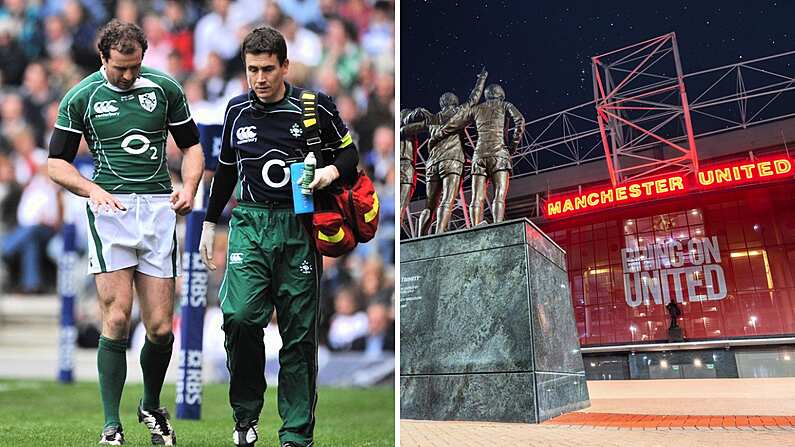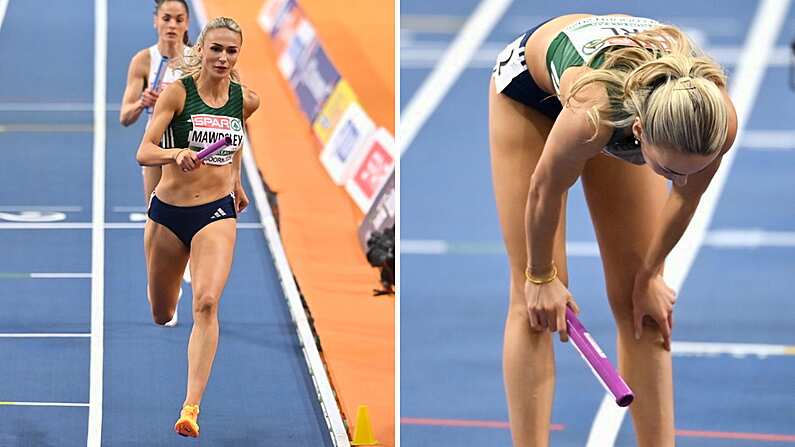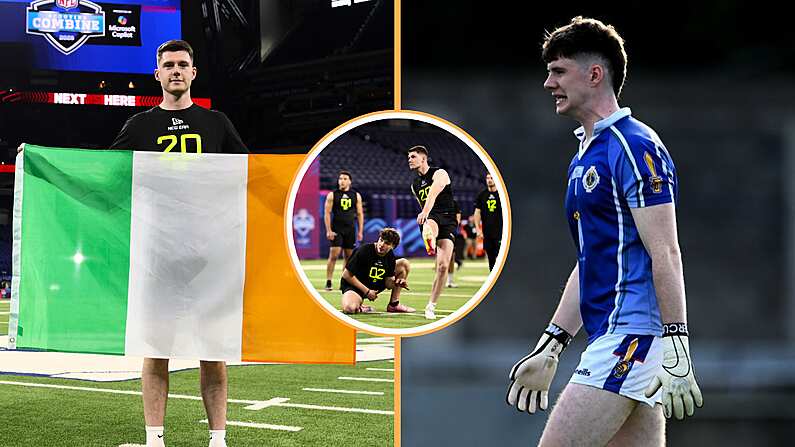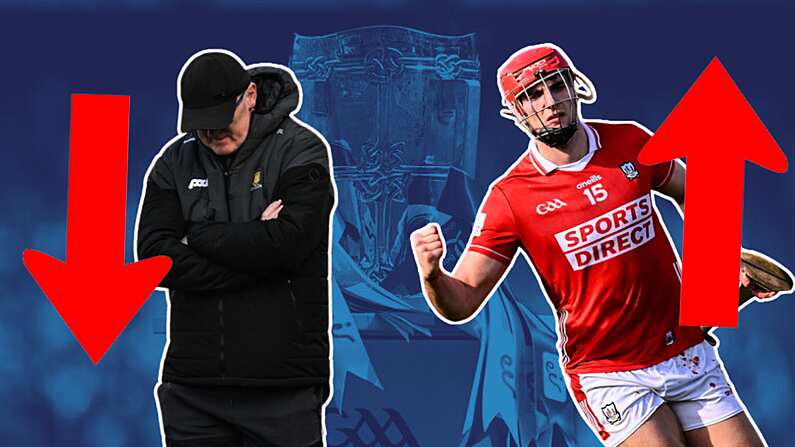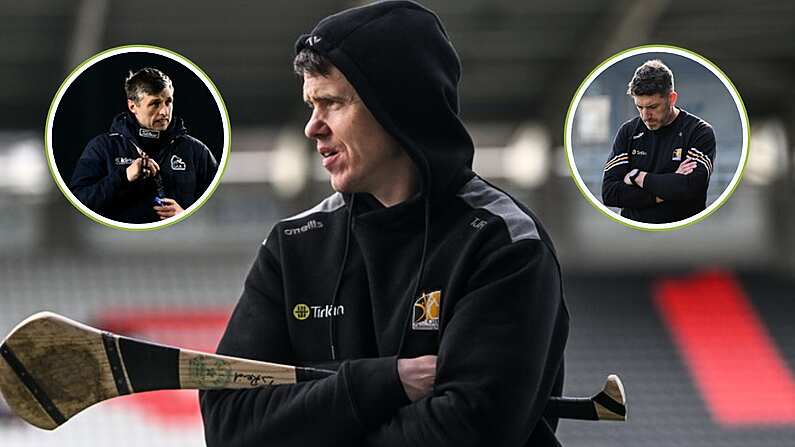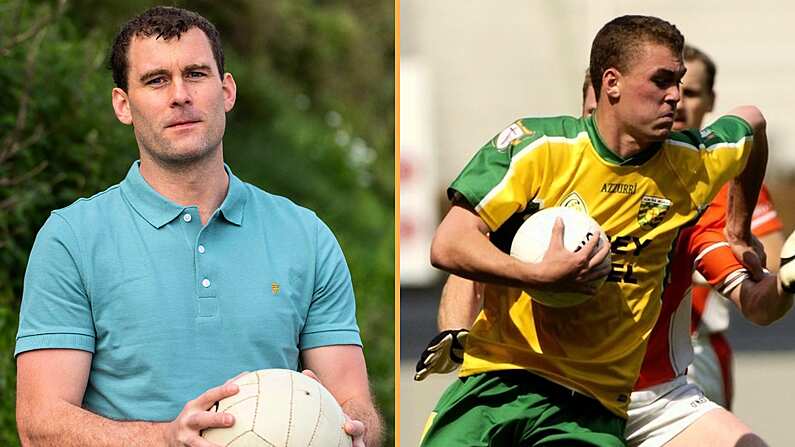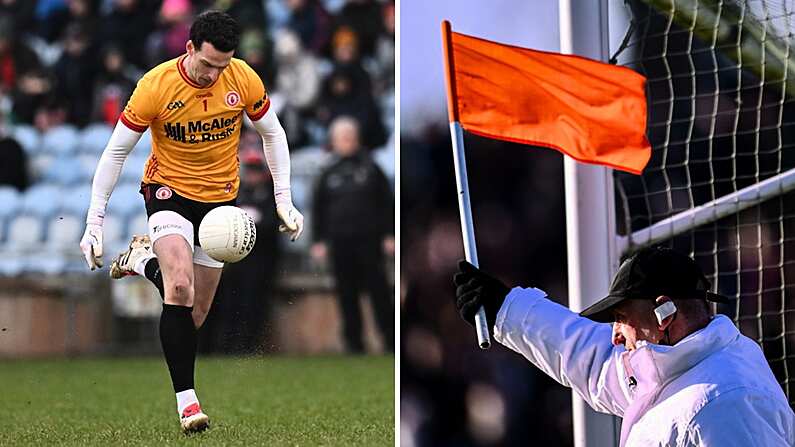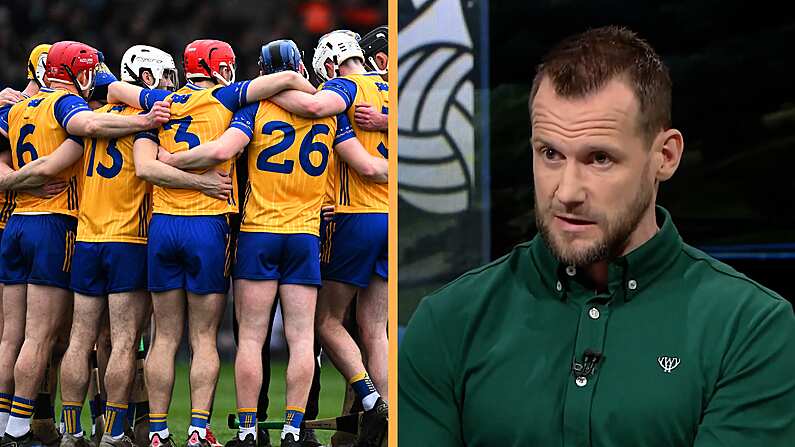There is no denying that the game of Gaelic football was forever altered by Jim McGuiness' spell in charge of Donegal at the turn of the previous decade.
Whereas the sport had undergone a number of tactical changes in the years leading up to that point, it had never quite witnessed such a radical shift in the approach to the game.
Donegal received a huge amount of criticism for their defensive tactics during the early days of his reign, with many believing it went against the ethos of the sport.
Despite this, there was no doubt that it was effective. Having spent a number of years as whipping boys in Ulster, Donegal would win their first provincial title in 19 years during his first season in charge.
However, the criticism directed their way peaked later that summer following a 0-8 to 0-6 defeat against Dublin in the All-Ireland semi-final. On RTÉ's coverage of the match, Pat Spillane said that McGuinness should be sent to The Hague for 'crimes against football'.
The team did evolve over the off-season to incorporate more attacking play into their game plan, going on to win the All-Ireland the following year.
Michael Murphy on the criticism directed towards Jim McGuinness
Michael Murphy was one of the few remaining links from that team to the current Donegal setup over the last couple of years, although he would retire from the inter-county game ahead of the 2023 campaign.
Appointed as captain of the team by Jim McGuinness as a 21-year old, there was a sense that he was one of the key men when it came to getting the team to thrive under his tactical approach.
Appearing on BBC's The GAA Social, he said that the criticism from the outside had very little effect on the team, even if they weren't too 'naive' to realise that the defensive approach during that first year would have to evolve moving forward.
You're in that zone, that togetherness. It was working, it had been effective.
There were a lot of players there for years that had been losing games, all of a sudden you're winning games. You were winning games by playing this way and method, by training this way and with this method...
I had gotten a good idea of it the year before at U21 level. The senior players probably had a good idea of it from watching that team, they knew the way it was going to evolve.
You were training that way night in and night out, it was getting us results. That was the big thing. With anything you try to introduce, that early kick of getting results is a critical and crucial one.
Jesus, there was absolutely no criticisms thrown back, I'll put it that way...
I've no doubt it was (a big shift to GAA landscape). You're so engrossed, that's way it was played and the way it was going to be played.
After the Dublin game (in 2011), throughout the year and winter months there was a strong realisation in the group that we had a big body of work to do attacking wise. While everybody else was back here talking about this, we were moving on trying to do something with the attacking game during that period of time.
We're not naive to know that that there wasn't two elements to it. The scoring in games was down in terms of opposition, viewing, and kicking, all that kind of traditional stuff that has become so revered and spoken about with lilts down the country for so long.
When that's taken away, obviously it causes a bit of grief and panic.
I keep going back to it, when you're put down for so long and all of a sudden you get a bit of success, you're winning Ulsters for the first time in so many years, you think you're on the right track.
Donegal would win the All-Ireland in 2012, followed by another appearance in the final in 2014.
Jim McGuinness would lead the county to three provincial titles in four seasons before stepping aside as manager. He has not managed another inter-county team since.
The tactical approach he brought to the game quickly became popular at club level, although it was widely misunderstood by many of the coaches who attempted to implement. Outside of that first season, the Donegal game plan was as much about attacking as it was defending.
The failure to understand that led to some dire football being played around the country, a trend that took many years to reverse. McGuinness cannot be blamed for that, but there is no doubt that his spell with Donegal had far-reaching consequences on the sport as a whole.

